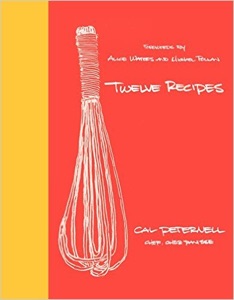Speaking of laying down the law, the correct way to cook a Thanksgiving turkey is to roast it on a charcoal grill.
Take the turkey out of the refrigerator after breakfast. If you purchased a frozen turkey, you made a mistake. Unlike the Cubs, you’ll have to wait for next year for redemption, but with luck no one will find out. If the turkey is still frozen, you are in a lot of trouble, boychik, and I can’t really help you, but a sinkful of water might.
Leave the turkey out on the counter to warm up to room temperature. Remove the packet of giblets and stuff; they’re useful for gravy. Stuff the cavity with one onion (quartered), one apple (quartered), and one orange (unpeeled and quartered). Do not fill the turkey with bread stuffing: it might not cause food poisoning, but it will cause your guests to debate medical questions and that’s not something you need, this year of all years.
If you are East of the Mississippi, light the charcoal at half-time in the Detroit game. If you are in the Central Time Zone, light it at the same time: you eat earlier. (If you’re in the Central Time Zone and not in Illinois, our national calamity is all your fault and you can eat turkey and crow whenever the hell you feel like it.) On the West coast, you'll have to figure out the time yourself; I’ve only done this once out West.
Use a charcoal chimney to light your fire. Avoid lighter fluid. If you don’t have a charcoal chimney, the old advice called for a coffee can but who has canned coffee these days? You’re in trouble. Do your best: stand up, speak out, and take your own part.
Arrange the coals on both sides, leaving the middle free for a broiler pan. You know those tinfoil pans they sell at the supermarket? This is the only acceptable use for those pans. Go to town. Put some water in the pan. Put the grill on, then put the turkey on the grill above the pan. Put the lid on the grill. Watch the game.
Add a little charcoal from time to time. The turkey should be done around the time the Dallas game ceases to be interesting. An instant-read digital thermometer will tell you when it’s time to take the turkey off the grill. The little plastic popup from the grocery store might tell you, but I wouldn’t rely on it and neither should you. If you believe in little plastic popups, you probably believed in the pussy-grabber and deserve a dry and tasteless turkey anyway.
Admire the turkey. Let the turkey rest for half an hour. Relax: the Dallas game tends to get slightly interesting around this time, though nothing will come of it. That turkey weighs a ton, remember, and it’s rock solid; it’s not going to get cold.








